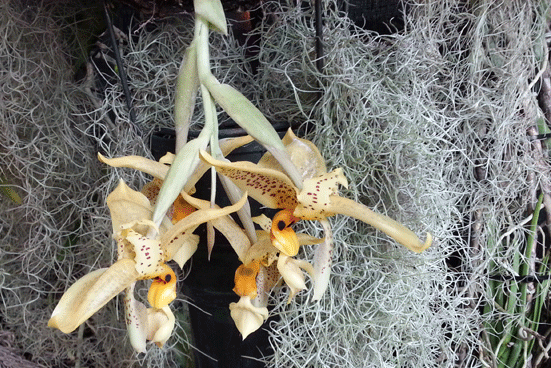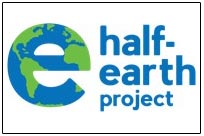
Famed biologist E.O. Wilson makes a new plan for biodiversity
… Make a New Plan, Stan-hopea…
Artists of today are playing an important role in raising the public’s awareness of climate change and the need to take big steps toward conservation. Actually, artists have always had a major influence in the public’s consciousness, but today it is literally a matter of life and death for many species, possibly even the human race.
Music is a form of social media
For all of us baby boomers, music was a special part of our growing up experience. This is true of every generation, but music played a special role before the age of social media. Music was our own form of social media, represented by the albums we bought and the radio stations we listened to. We formed many of our views of society from the words of songs and from the messages various artists projected through their music.
Perhaps today’s song lyrics do not convey messages as much as they did in the past. Still, music is influential in shaping our views on major issues. Numerous examples come to mind. Remember how music played a part in bringing AIDS and Poverty to the world’s attention? Similarly, concerts have been held for Farm Aid, to help victims of natural disasters such as Katrina, and to fight specific diseases.
Many of these mega events have been broadcast world-wide, thereby increasing global awareness. Stevie Wonder and Sting have done much good with their global concerts, reaching out to millions across the globe. Music is the international language. It literally has no borders.
Singer/Songwriter Paul Simon takes his role as awareness-raiser very seriously
If you think further back into the past, you will remember another important artist, my favorite singer and songwriter, Paul Simon. In the 1980’s he was a pioneer in benefit performance art, breaking with convention by going to South Africa and bringing back with him the music and the awareness of Apartheid. The list of songs he wrote that became classics would fill up this page. Having done so much important work, it was not entirely surprising to hear of his plans to retire.
 Suddenly there is an idea whose time has come, and Paul Simon is ready to go back on the road to help this idea take hold in the public’s consciousness. What is this idea that inspired him to shelve his retirement plans and get back to work? Here is a clue: He announced his tour in an article in Mongabay.com.
Suddenly there is an idea whose time has come, and Paul Simon is ready to go back on the road to help this idea take hold in the public’s consciousness. What is this idea that inspired him to shelve his retirement plans and get back to work? Here is a clue: He announced his tour in an article in Mongabay.com.
Need another clue? Take a look at my article in the March edition of this newsletter. Paul Simon just announced that in June of this year he will start on a 17-city tour, with the proceeds going to support the Half-Earth Project. As outlined in the March article, the Half-Earth concept formulated by famed biologist E.O. Wilson is a plan to set a goal for preserving half of all natural habitats, in order to save at least 80% of the species left on this planet. Proceeds from Paul Simon’s tour will benefit the E.O. Wilson Biodiversity Foundation.
Paul Simon and E.O.Wilson first met in 2007 at a TED conference where Simon was performing, and where Dr. Wilson received the 2007 TED prize. Their meeting planted the seed for a future collaboration, which neither of them envisioned at the time. Simon was impressed with Dr. Wilson’s optimism and energy, as well as his belief that by the 22nd century, we could be living in a paradise on Earth. In the Mongabay interview Paul Simon says,
It was so inspiring to think about it. And I did think about it. Earth’s a jewel, but it’s endangered. And he said that, he said we could lose it. But we have the ability to fix it. It’s going to take a little while, maybe 100 years, maybe 200 years, to fix it. But we can, and then it would be like living in paradise. But he said it’s only going to take 75 to 100 years to make it into a desolate place.
Audio: Paul Simon on his new tour in support of E.O. Wilson’s Half-Earth initiative
Meeting of 10 years ago leads to Paul Simon getting involved in Biodiversity Days
Going forward 10 years, Dr. Wilson invited Simon to join him at Biodiversity Days, a two-day conference on the campus of Duke University. Held in early March of this year, it was sponsored by the E.O. Wilson Biodiversity Foundation. And again from the article :
And I heard what he [Wilson] was doing and he said he wanted my help. And I said, I don’t know what I can do. I said, I can sing. I can sing at a concert. I can bring some people together. I mean, the problem is immense. What can I do? So basically, Ed said, “You can help us bring people’s attention to this issue. But read the book.” And the book was galvanizing!
When Justin Catanoso of Mongabay asked him what he hoped the tour will accomplish, Simon replied:
The Half-Earth thinking and the name of Edward Wilson will be more familiar at the very least because of this, and that will accomplish who knows what. Hopefully something significant. It can’t be insignificant. It will be something. It makes sense to me. It gives me added incentive to go out and perform again…I mean, look at Ed. At 87, he’s remarkable. And we’re so fortunate that he’s doing this.
Paul Simon’s words really resonate with Charlie, because they express exactly what Charlie is trying to do with his art. Except, being a successful songwriter, he finds better words than we can. He says:
I would really like to help work on the environment. I would just as soon not work on some political battle for the next four years where you’re angry and exhausted all the time. There are other people who are going to do that. This is what I think is a priority. If we don’t have a planet, then all human rights issues are moot.
Paul Simon’s New Plan is full of hope. We like and admire what he is doing. How about you?![]()
P.S. What in the world is meant by “Make a new plan, Stan-hopea”?
If you have read this whole article, and if the title has you mystified, allow us to explain. In one of Paul Simon’s songs, he includes the line “Make a new plan, Stan …”. But as genuine orchid enthusiasts, we couldn’t leave well enough alone. We had to go and make a bad pun out of it. As it happens, one of our favorite orchids is “Stanhopea”, and we took the liberty of mis-using Simon’s song lyric. Never miss an opportunity to put an orchid name into the title of an article, we always say.